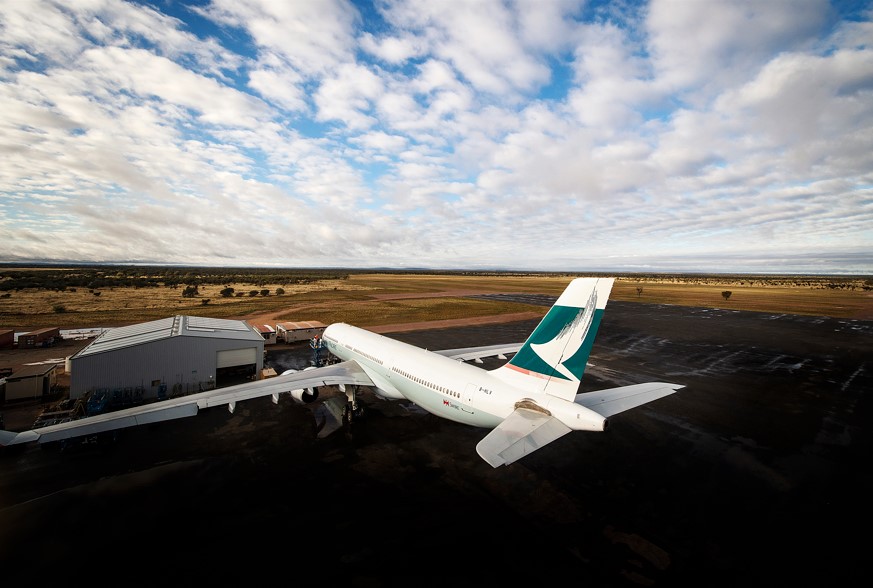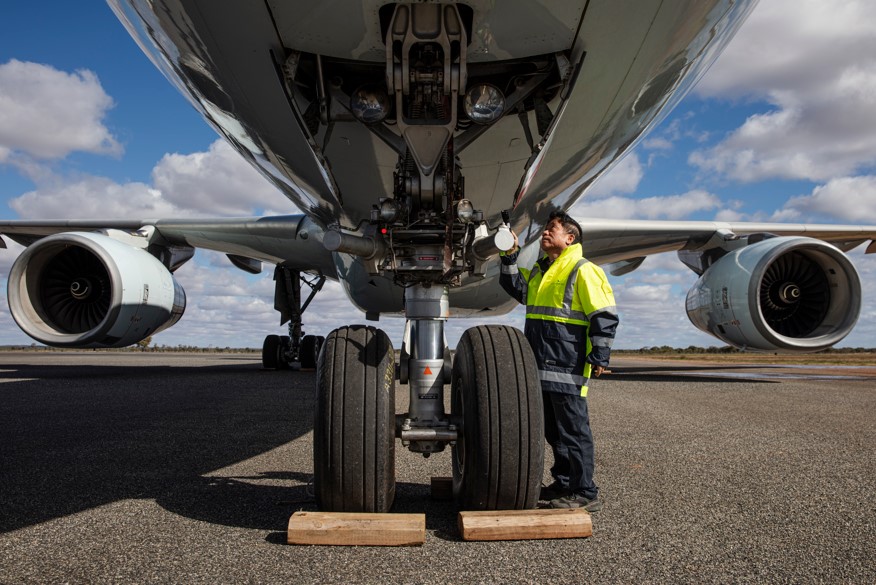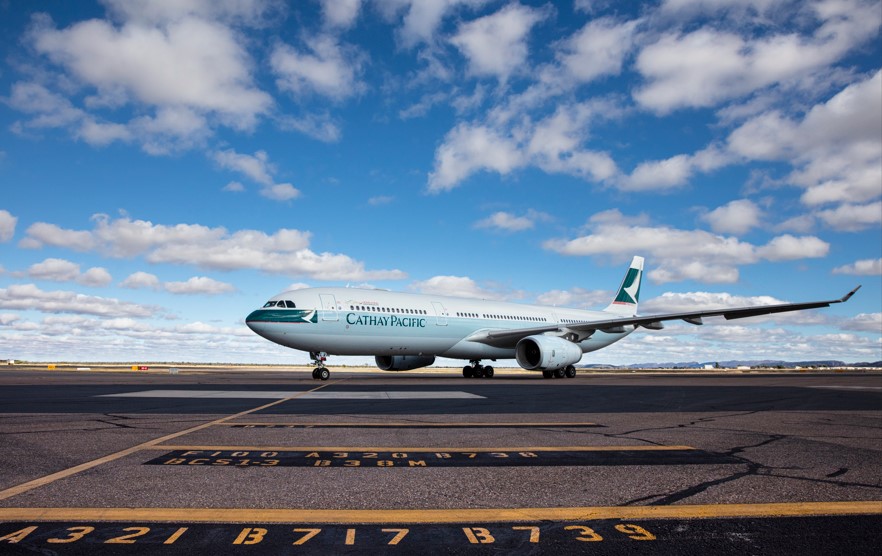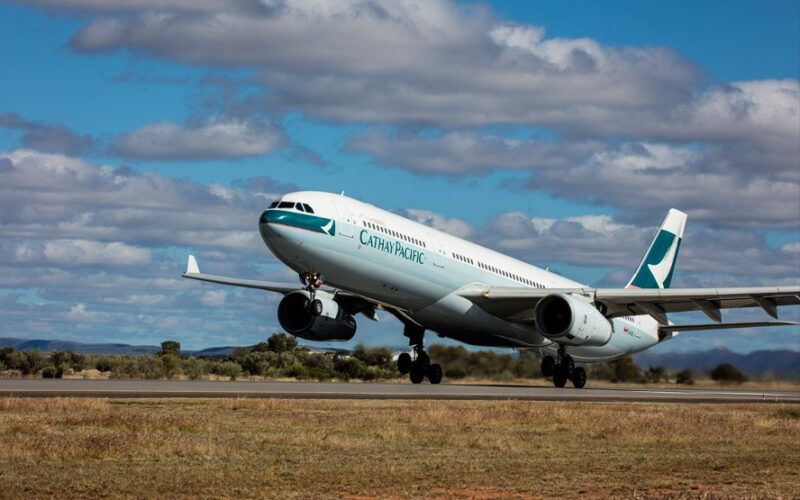Cathay Pacific has just flown its last remaining plane stored in the Australian outback to Hong Kong. The airline had placed much of its aircraft fleet into storage at various locations around the world following the start of the COVID-19 pandemic in early 2020.
The aircraft, an Airbus A330-300 registered B-HLV, left Alice Springs Airport (ASP) in Australia’s Northern Territory and headed home to Hong Kong via a stop in Darwin on June 6, 2024. The plane had been in Alice Springs since September 2020. With its arrival back at its home airport, the ferry flight marked the end of a four-year-long saga that saw much of the carrier’s fleet mothballed.
In all, 70 aircraft were sent by the carrier to be stored in the dry, arid conditions of the Australian desert. These included types such as the A330, A321, and the Boeing 777-300ER and also included aircraft from the airline’s now-fully absorbed subsidiary, Cathay Dragon.
Before the pandemic, Alice Springs Airport saw just a handful of flights each day operated by narrowbodied turboprops and Boeing 737s or Airbus A320s. That was until the first few weeks of 2020 when dozens of Cathay planes arrived at the small regional airport located in Australia’s ‘Red Center’.

The rows upon rows of green and white planes changed the landscape completely for those living close to the airport – a scene that has slowly diminished over the last two years as the carrier has continued its recovery in the post-pandemic world.
The location of Alice Springs lends itself to long-term aircraft storage. With the area enjoying relatively consistent dry weather conditions and low humidity, the climate is almost ideal to preserve expensive aircraft in the open air, rather than storing them in expensive hangars. However, even storing planes in such conditions involves a hugely intensive maintenance program so that the airframes and engines can be revived, and the aircraft flown out again when the time is right.

For example, every windowpane, external sensor, landing gear set, and engine must be covered in plastic sheeting to protect them from dusty conditions and from being inhabited by local wildlife. Additionally, each aircraft underwent a cycle of periodic maintenance checks performed every seven, 14, and 30 days, involving an army of on-site engineers.
According to Cathay Pacific, throughout the time that its aircraft were in Alice Springs, over 16,000 checks of this type were carried out, representing over 800,000 hours of labor in total across the stored fleet.
“An incredible amount of work goes into keeping an aircraft safe and protected when it isn’t flying, and to then reactivate it for entry back into regular service,” said Alex McGowan, Cathay Pacific’s Chief Operations and Service Delivery Officer speaking to Executive Traveller magazine. “To do this for more than 85 aircraft long-term parked overseas, as well as to manage the large number of aircraft that were parked in Hong Kong, is a phenomenal achievement.”
Fleet fully restored
With a fleet of 185 aircraft now fully operational, the airline is well on its way to recovery, having been one of the world’s major international airlines most affected by the travel restrictions imposed during the pandemic. Passenger figures have rebounded, while the carrier’s month-on-month revenues continue to show consistent rises.
The airline has also unveiled plans for its new business-class product and a revamp of its premium economy cabins. The aircraft also has a further 70 aircraft on order including Airbus A321neos, A350F freighters, and Boeing 777-9s when that type finally receives certification. The carrier is also eyeing further expansion in its core long-haul markets of Europe, North America, and Australia.

As for B-LHV, following its four-year hiatus from commercial service, the aircraft is undergoing further re-entry into service checks with Cathay Pacific at the carrier’s Hong Kong Chep Lap Kok International Airport (HKG) headquarters before it returns to flying fare-paying passengers around Asia once more.

